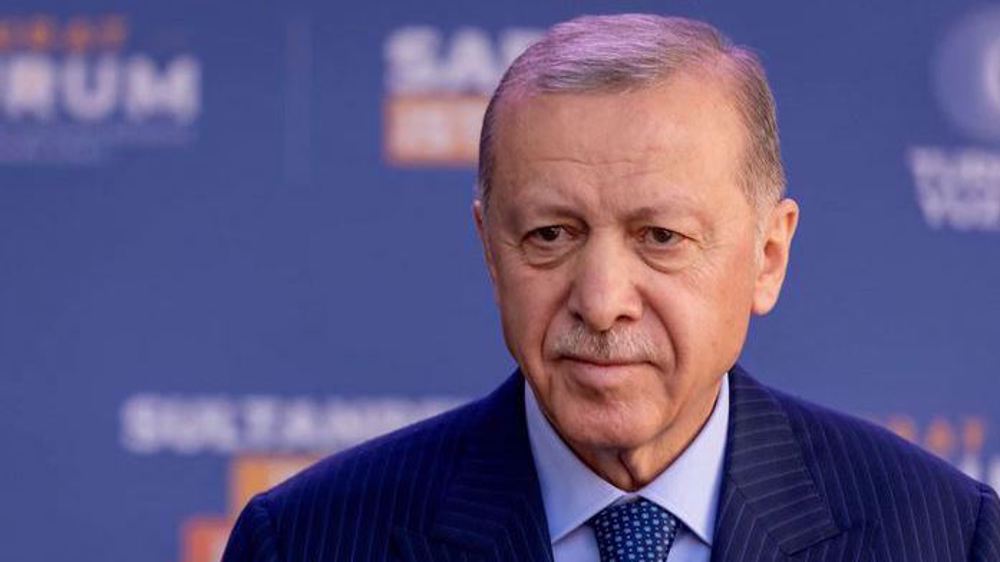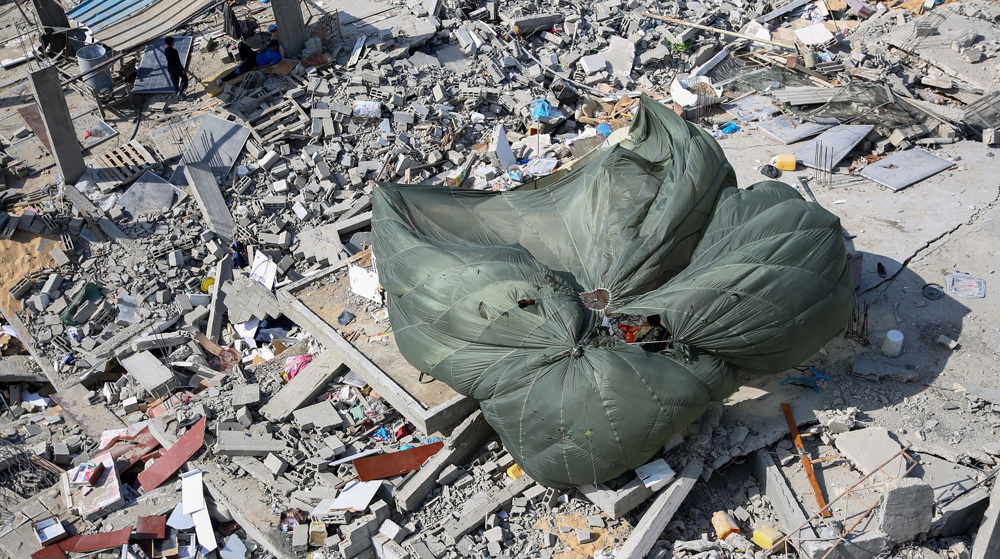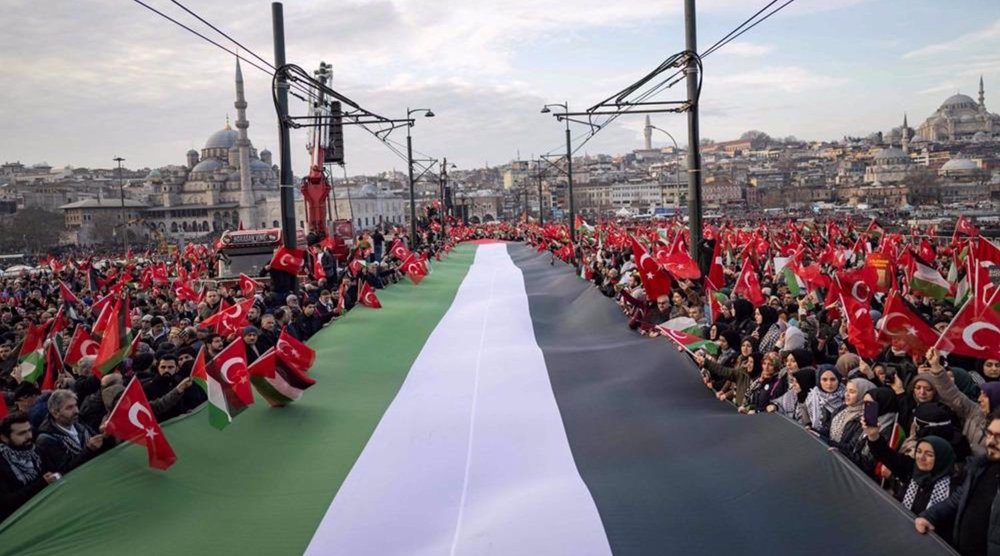EU, NATO call on Turkey to deescalate tensions with Netherlands
The European Union (EU) and the North Atlantic Treaty Organization (NATO) have strongly called on Turkey to move toward defusing the deepening row between Ankara and the Netherlands which erupted after a ban on Turkish ministers speaking at political events in Rotterdam, urging both sides to show mutual respect.
EU foreign policy chief Federica Mogherini and EU Enlargement Commissioner Johannes Hahn in a joint statement on Monday urged Ankara to “to refrain from excessive statements and actions that risk further exacerbating the situation.”
The EU statement came two days after Dutch authorities banned Turkish Foreign Minister Mevlut Cavusoglu and the country’s Family and Social Policy Minister Fatma Betul Sayan Kaya from campaigning for Turkey’s April constitutional referendum which seeks to extend President Recep Tayyip Erdogan's powers.
The ban triggered an unprecedented row between Ankara and Amsterdam, with Erdogan calling the Dutch authorities “fascists” and “remnants of Nazis” on Sunday, reiterating his previous provocative assertions, which sparked outrage in a country that had gone through Nazi Germany’s bombardment and occupation in World War II.
Shortly after Erdogan’s comments, Dutch Prime Minister Mark Rutte noted that Ankara should apologize for comparing the Dutch to Nazis.
On Sunday, Turkey, in a seemingly retaliatory move, sealed off the Dutch embassy in Ankara and consulate in Istanbul over “security” reasons, and asked off-duty Dutch ambassador in Ankara, who was on leave, not to return “for a while.”

Several German municipalities had earlier canceled similar rallies by a number of Turkish ministers campaigning for a “yes” vote in the April plebiscite, a move that also angered Ankara.
“Following the tensions of these last days between Turkey and some EU member states, it is essential to avoid further escalation and find ways to calm down the situation,” the EU statement further said.
EU to assess Turkey’s constitutional changes
In a separate statement, the European Commission said on Monday that it would evaluate Turkey’s planned constitutional changes in light of the country's status as an applicant for EU membership, which Ankara has been seeking for a long time.
The vote is aimed at abolishing the office of the prime minister and giving more executive powers to the currently largely ceremonial position of the Turkish president.

NATO urges deescalation
Meanwhile, NATO chief Jens Stoltenberg also called on Ankara and Amsterdam to settle their escalating dispute, saying "robust debate is at the heart of our democracies but so is mutual respect."
Stoltenberg further encouraged all the military bloc’s allies to show mutual respect for one another and to “be calm and have a measured approach,” adding that the focus in the meantime should be on all those issues that unite the member states.

Dutch PM criticizes Ankara’s attitude
In a related development on Monday, the Dutch premier said in a news conference in Rotterdam that his country would “never negotiate under threats from the Turkish government” and that the Turks, who live in the Netherlands, “are Dutch citizens, not Turkish citizens.”
As the tensions escalated, the Netherlands issued a new travel warning for Turkey, urging Dutch citizens there to take care.
Rutte also confirmed that the Dutch government had tried to ease the current tensions with Ankara, adding that Erdogan’s remarks would not help deescalate the situation between Ankara and Amsterdam.
Turkey hits back with sanctions
His remarks came after the Turkish senior authorities, including President Erdogan, warned that they would impose sanctions on the European country for the ban on Turkish ministers.
According to some unnamed sources close to the Turkish government, the Turkish cabinet, in a session held later in the day, announced a series of political sanctions on the Netherlands and the cancellation of all high-level relations and meetings with the country. Other sources said that Ankara would not restrict its counter-actions to mere economic measures, but cultural activities, and military and technological cooperation might be affected.
Deputy Prime Minister Numan Kurtulmus said the sanctions would apply until Amsterdam takes steps "to redress" the actions Ankara sees as a grave insult. "There is a crisis and a very deep one. We didn't create this crisis or bring it to this stage... Those who did have to take steps to redress the situation."
Kurtulmus also said that Ankara had closed its air space to Dutch diplomats until the Netherlands meets Turkish requests.
He went on to say that the Dutch ambassador will not be allowed to return to the country, and the parliament is advised to withdraw from a Dutch-Turkish friendship group.
Turkish Minister for EU Affairs Omer Celik said before the meeting, “we will surely have sanctions against the latest actions by the Netherlands. We will answer them with these.”
He also announced the end of a refugee deal between Turkey and Europe. "Turkey has no obligation at this stage to continue the agreement since the EU has failed to comply with it," Celik told a news conference in capital Ankara.
"Nonetheless, we have acted [all this time] out of humane responsibility," he said, adding Turkey prevented a lot of deaths in the Aegean Sea after the deal. "But Turkey should reconsider this issue [the refugee deal] especially in terms of land crossings," Celik said.
US vetoes Palestinian request for full UN membership
Iran sufficed to striking part of Israel’s military positions: FM to UN chief
IRGC: Israel’s Dimnoa nuclear reactor not among Op. True Promise’s targets
'Stop any further Israeli adventurism,' Iran FM tells Security Council
Google fires 28 employees for protesting military deal with Israel
Burkina Faso expels three French diplomats over ‘subversive activities’
Iran slams G7 statement, vows no iota of doubt to respond to aggression
German authorities arrest Jewish activist over pro-Palestinian demos














 This makes it easy to access the Press TV website
This makes it easy to access the Press TV website